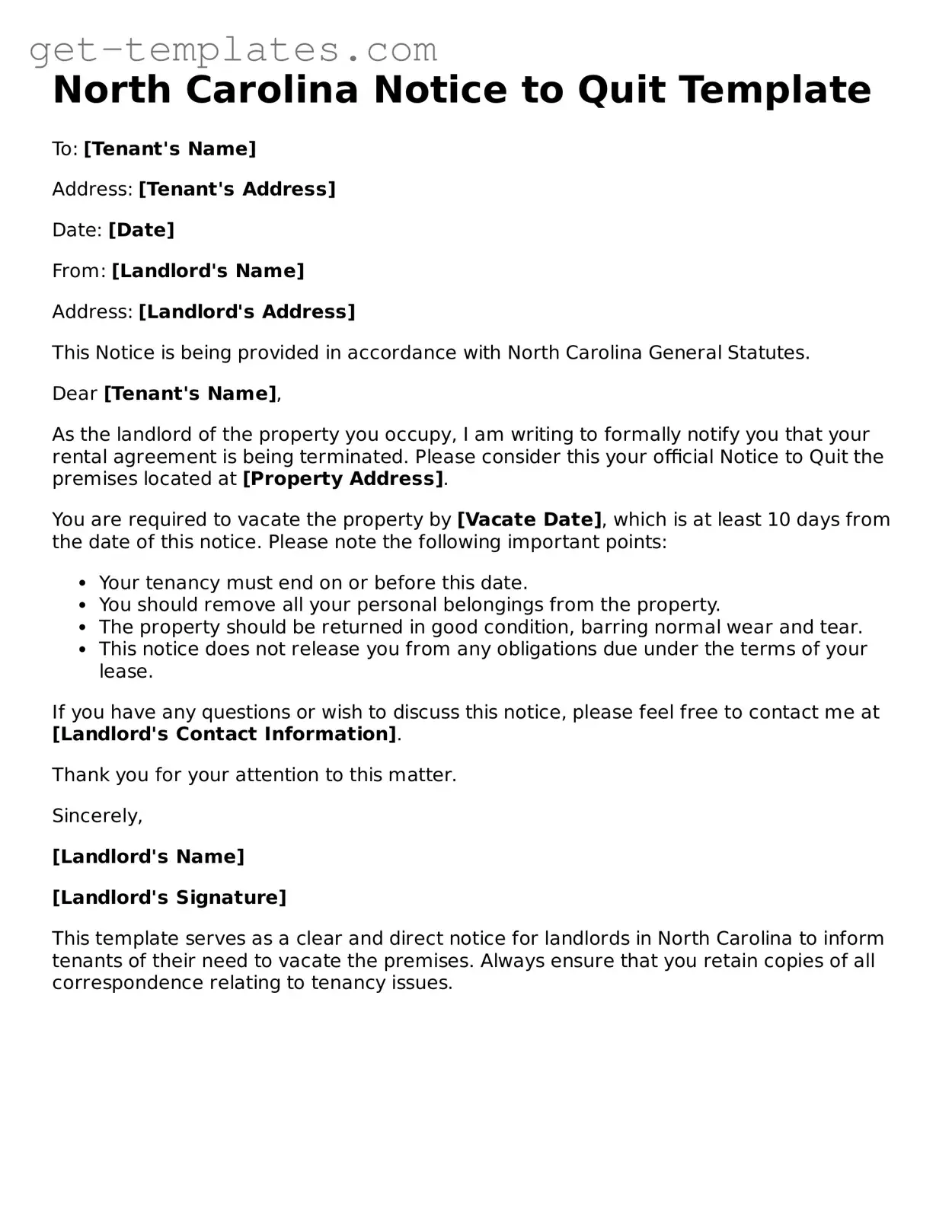Attorney-Approved Notice to Quit Document for North Carolina
The North Carolina Notice to Quit form is a legal document that landlords use to inform tenants of the need to vacate the rental property. This notice serves as an official communication, outlining the reasons for termination of the lease and the timeframe for vacating. Understanding this form is essential for both landlords and tenants to ensure compliance with state laws and protect their rights.
Get Document Online

Attorney-Approved Notice to Quit Document for North Carolina
Get Document Online
You’re halfway through — finish the form
Finish Notice to Quit online — edit, save, download made easy.
Get Document Online
or
⇓ PDF Form
